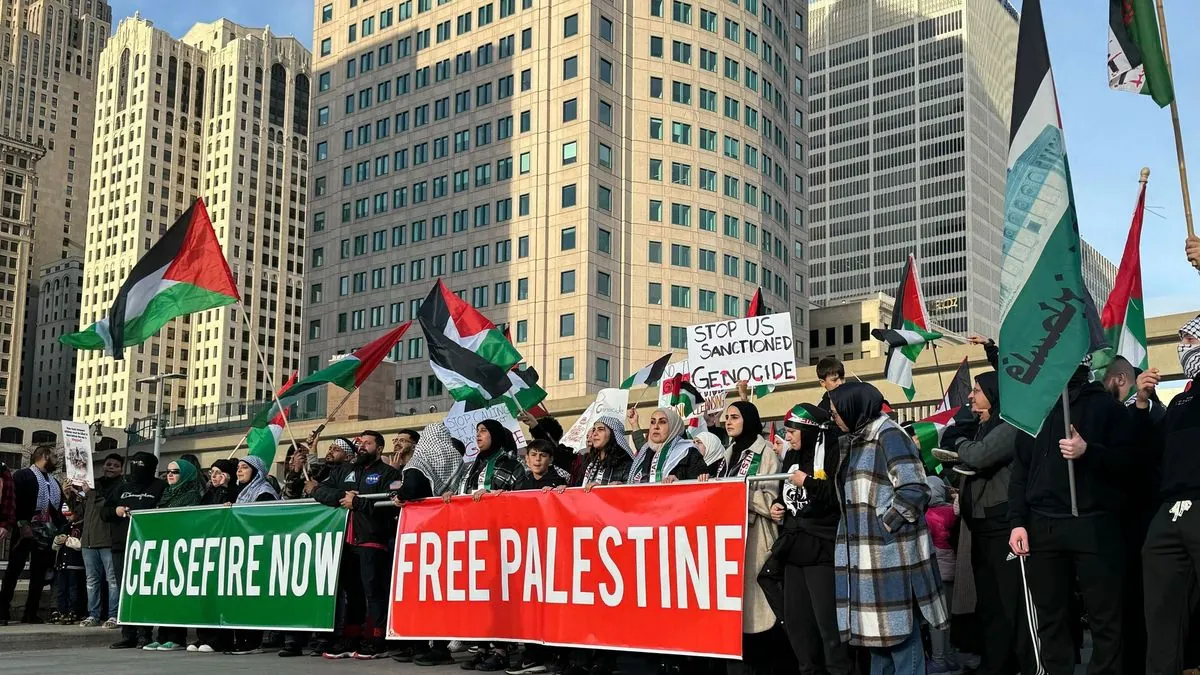The Uncommitted Movement in Michigan has emerged as a significant challenge for Vice President Kamala Harris in the lead-up to the November 2024 presidential election. This movement, which gained over 100,000 votes in the February Democratic primary, represents the growing dissatisfaction among Arab American voters with the administration's policies towards Israel and Palestine.
Michigan, home to approximately 390,000 Arab Americans, has become a crucial battleground for the Democratic Party. The state's Arab American population, making up about 5% of Michigan's total, has been a growing political force since the 1990s. Their concerns, particularly regarding the ongoing conflict in Gaza, have taken center stage in the political discourse.
Many Arab American voters view the United States as complicit in the devastation in Gaza due to its continued arms transfers to Israel. This sentiment has led to a surge in political activism, with voters exploring options beyond traditional party lines.
"This could have been a moment for her to express support with Palestinians and say 'OK, I will take action and make changes.' Instead, Harris belittled us and used her event as a platform to say, 'You are stuck with me and there is nothing we will do to help Palestinians.'"
The Uncommitted Movement has employed various strategies to influence the Democratic Party's stance on Palestine. Some activists have engaged in disruptive protests, while others have sought direct engagement with party leaders. This dual approach has led to some progress, including the first-ever panel on Palestinian human rights at the Democratic National Convention in Chicago.
However, many Arab American voters remain skeptical of Harris's commitment to change. They point out that the administration has continued several Trump-era policies, such as maintaining the U.S. embassy in Jerusalem and the closure of the Palestine Liberation Organization's office in Washington. These policies, implemented in 2018, have remained unchanged despite the change in administration.
The movement has also highlighted the lack of funding for UNRWA, the United Nations agency established in 1949 to support Palestinian refugees. This issue, along with the broader question of Palestinian rights, has become a litmus test for many voters in the Arab American community.
Some voters are considering third-party options, such as Green Party candidate Jill Stein, who has gained support due to her stance on Palestine. However, the majority of those interviewed expressed a preference for voting uncommitted or abstaining altogether.
The Uncommitted Movement's impact extends beyond Michigan. It has empowered Arab American communities across the country, demonstrating their potential to influence national politics. As one activist noted, "We have become a credible threat politically. We do not have the power to put someone in the office, but we have the power to take someone out of the office."
As the November election approaches, Harris faces the challenge of addressing these concerns while maintaining the support of other key Democratic constituencies. The outcome in Michigan, which has voted Democratic in every presidential election since 1992 (except for 2016), could have significant implications for the national result.
The situation underscores the complex interplay between foreign policy and domestic politics, particularly in diverse states like Michigan. With Dearborn boasting the largest concentration of Arab Americans in the United States, the community's voice in this election cycle is impossible to ignore.
As one Palestinian American voter poignantly stated, "Either way, we are dead." This sentiment reflects the deep frustration and sense of urgency within the community, challenging the Democratic Party to reassess its approach to Middle East policy and its relationship with Arab American voters.
